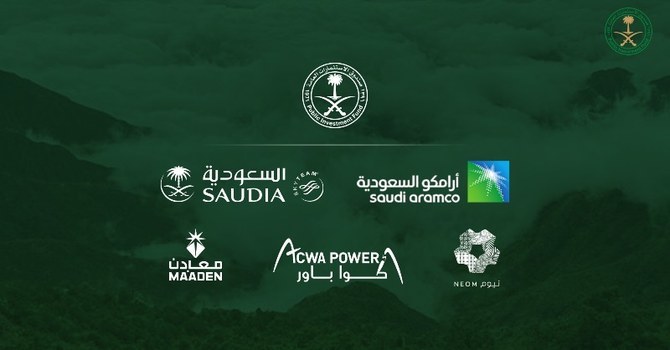
- ARAB NEWS
- 09 Jul 2025

Saudi Arabia’s Public Investment Fund announced last week that it had signed agreements with five leading industrial firms to become the sovereign wealth fund’s first potential partners in its Middle East and North Africa regional Voluntary Carbon Market. The companies are Saudi Aramco, the Saudi airline, ACWA Power, mining and metals company Ma’aden, and ENOWA, a subsidiary of the NEOM giga-project.
The launch of the voluntary carbon market initiative was originally announced by the PIF in September 2021 to reduce the impact of climate change. Under the PIF Green Finance Framework initiative, the Kingdom plans to reach net-zero emissions by 2060 through its Carbon Circular Economy strategy that was published during its leadership of the G20 in 2020.
In line with Saudi Vision 2030, to introduce social and economic reforms, this initiative will contribute to the development of the Kingdom’s green economy, create more jobs and open up investment in this new sector. The PIF’s proposed carbon market is one of those tools.
Carbon credit is a tool that is used internationally to reduce greenhouse gases or carbon emissions. These credits, first introduced in 1997, act as a permit to allow firms who hold them to release a certain amount of emissions. For example, one credit allows the emission of one ton of carbon dioxide. When a company pollutes, it can use its credits to allow them to continue to do so up to certain limits. Companies can sell unused credits to other firms that need them.
It is worth noting that the average American generates 16 tons of CO2 emissions a year through driving, shopping, using electricity and gas at home, and other everyday activities. Carbon credits are an important way to further energy transition policy and reduce emissions.
However, voluntary carbon markets work a bit differently. Companies in this marketplace can work with firms and individuals who are environmentally conscious and choose to offset their carbon emissions. This might be an environmentally conscious company that wants to demonstrate that they’re doing its part to protect the environment. Or a person who wants to offset the amount of carbon they put into the air when they travel.
For example, in 2021, the oil giant Shell company said it would offset 120 million tons of its CO2 emissions by 2030. Regardless of their specific reasoning, companies are looking for ways to offset the greenhouse gases they release — and a voluntary carbon market is a way for them to do that.
International carbon trading markets have been around for more than 20 years but were slow to adopt initially. The EU launched the world’s first large-scale emissions trading scheme as early as 2005 as a part of its climate policy. In the UK, Brexit required the country to recreate its own version of the EU’s carbon market, which was launched last May. Also, China opened the world’s largest emissions trading market last July, covering 40 percent of its emissions, and 12 percent of global emissions, as part of its plans to hit net zero by 2060.
There are other carbon market programs — either in operation or at the planning stage — in Canada, Japan, South Korea, Switzerland and the US. The combined value of the world’s total carbon markets has climbed to $272 billion, a fivefold increase since 2017.
Carbon markets are an important tool in helping drive emissions from the economy by effectively putting a price on pollution, and encouraging renewables and energy efficiency.
Voluntary carbon credit projects can help accelerate the transition to a decarbonized world economy, by driving investment into renewable energy, energy efficiency, and paying for green projects such as reforestation
So, it is welcoming news to see that concrete steps are being taken by the PIF with its voluntary carbon market program. It is impressive that they persuaded the country’s major industries and emitters of CO2 to join the scheme. This will surely encourage other businesses in the region to join the program. Shifting public attitudes to climate change adds to incentives for firms to be part of these initiatives.
This plan, the drive for renewables and other green programs in the Kingdom and across the Gulf, are all concrete steps toward ‘doing the right thing’ as part of regional energy transition plans to move to a cleaner planet and meet global climate targets.
And this can only be a good thing.
• Fuad Al-Zayer is an independent energy consultant. He is the former head of data services at OPEC and a former head of the JODI Global Initiative at the IEF. He is based in Alkhobar, Saudi Arabia.